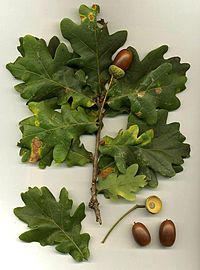
Effect of altering the steric hindrance of the nitrogen atom in 2,5-bis(pyridin-n-yl)-1,3,4 thiadiazole isomers on their ability to elicit tomato defense responses against Verticillium wilt and crown gall diseases
Sign Up to like & getrecommendations! Published in 2018 at "European Journal of Plant Pathology"
DOI: 10.1007/s10658-018-1441-8
Abstract: Three isomers of the ligand 2,5-bis(pyridinyl)-1,3,4-thiadiazole, with the N atom of pyridine group in position 2, 3 or 4, named respectively, L2, L3 and L4 were compared for their use as plant defense activators. They… read more here.
Keywords: verticillium wilt; defense; wilt crown; tomato ... See more keywords

First report of crown gall disease caused by Agrobacterium radiobacter on olive plants in Layyah, Punjab, Pakistan.
Sign Up to like & getrecommendations! Published in 2022 at "Plant disease"
DOI: 10.1094/pdis-12-21-2805-pdn
Abstract: Crown galls were observed on one-year-old olive plants (Olea europaea cv. Manzanilla) in the District Layyah (30.9693° N, 70.9428° E) of Punjab, Pakistan. Large tumors were evident on collars region, causing growth stunting, leaf yellowing,… read more here.
Keywords: layyah punjab; disease; olive plants; punjab pakistan ... See more keywords

Isothermal Amplification and Lateral-Flow Assay for Detecting Crown-Gall-Causing Agrobacterium spp.
Sign Up to like & getrecommendations! Published in 2017 at "Phytopathology"
DOI: 10.1094/phyto-04-17-0144-r
Abstract: Agrobacterium is a genus of soilborne gram-negative bacteria. Members carrying oncogenic plasmids can cause crown gall disease, which has significant economic costs, especially for the orchard and nursery industries. Early and rapid detection of pathogenic… read more here.
Keywords: detection; isothermal amplification; agrobacterium spp; agrobacterium ... See more keywords

Xanthomonas bonasiae sp. nov. and Xanthomonas youngii sp. nov., isolated from crown gall tissues.
Sign Up to like & getrecommendations! Published in 2022 at "International journal of systematic and evolutionary microbiology"
DOI: 10.1099/ijsem.0.005418
Abstract: The genus Xanthomonas contains a set of diverse bacterial strains, most of which are known for their pathogenicity on annual crops and fruit trees causing economically important plant diseases. Recently, five Xanthomonas strains were isolated… read more here.
Keywords: xanthomonas youngii; bonasiae nov; gall; gall tissues ... See more keywords

Phenotypic and Molecular-Phylogenetic Analyses Reveal Distinct Features of Crown Gall-Associated Xanthomonas Strains
Sign Up to like & getrecommendations! Published in 2022 at "Microbiology Spectrum"
DOI: 10.1128/spectrum.00577-21
Abstract: Tumorigenic agrobacteria—members of the bacterial family Rhizobiaceae—cause crown gall and hairy root diseases on a broad range of plant species. These bacteria are responsible for economic losses in nurseries of important fruit trees and ornamental… read more here.
Keywords: gall; phylogenetic analyses; crown gall; gall associated ... See more keywords

Biological Control for Grapevine Crown Gall Evaluated by a Network Meta-Analysis
Sign Up to like & getrecommendations! Published in 2023 at "Plants"
DOI: 10.3390/plants12030572
Abstract: Grapevine crown gall (GCG), which is caused by Allorhizobium vitis (=Rhizobium vitis) tumorigenic strains, is the most important disease of grapevine around the world. Previously, nonpathogenic A. vitis strains VAR03-1, ARK-1, ARK-2, and ARK-3 were… read more here.
Keywords: biological control; control; grapevine crown; ark ... See more keywords

Isolation and Characterization of Avirulent and Virulent Strains of Agrobacterium tumefaciens from Rose Crown Gall in Selected Regions of South Korea
Sign Up to like & getrecommendations! Published in 2019 at "Plants"
DOI: 10.3390/plants8110452
Abstract: Agrobacterium tumefaciens is a plant pathogen that causes crown gall disease in various hosts across kingdoms. In the present study, five regions (Wonju, Jincheon, Taean, Suncheon, and Kimhae) of South Korea were chosen to isolate… read more here.
Keywords: south korea; rose crown; virulent strains; crown gall ... See more keywords